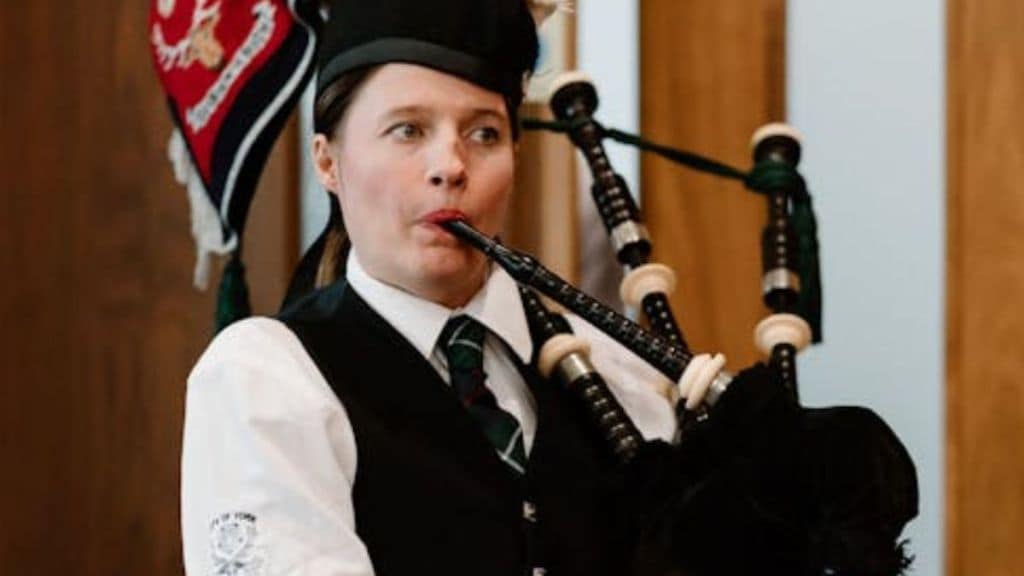When Julie Brinklow, a bagpiper from the Scottish town of Ellon, noticed swelling in her right breast in 2023, she didn’t think much of it. “It was something that I wasn’t concerned about,” Julie told Daily Mail. “It wasn’t the textbook small hard lump. It just felt like I had a bigger muscle there or something.”
Julie has been playing the bagpipes for years, a physically demanding instrument that requires chest strength and control. As the Pipe Major of the Grampian Police Pipe Band and the official piper for Aberdeen’s Lord Provost, she assumed the swelling came from flexing her chest muscles on one side while playing.
“I thought to myself that maybe I was just lopsided because I play the bagpipes and you flex your chest muscles a lot when you play,” she said.
The shocking diagnosis
At first, she brushed it off. But her partner insisted she get checked. When Julie finally went to the doctor, she received devastating diagnoses of breast cancer.
“It took me a moment to really hear everything that was being said,” Julie told People. “My mind was in a spin.”
The diagnosis came in March 2023, and while there the cancer hadn’t spread beyond her right breast, doctors discovered it was estrogen receptor-positive (ER-positive). This means the cancer cells grow in response to estrogen.
According to the Cleveland Clinic, ER-positive breast cancer tends to be less aggressive but still carries a risk of recurrence after treatment, including treatment for early-stage, low-risk ER-positive breast cancer. To reduce that risk, Julie underwent a double mastectomy, removing both breasts.
‘I was out walking for miles every day’
After surgery, Julie didn’t stay down for long. “Following surgery I was out walking for miles every day,” she said. “You could say I walked myself better.”
Her love for music kept her going. “When you play the bagpipes, you really do need to be able to raise your arms above your head,” she explained to People. “Lots of women don’t get their full mobility back after surgery,” she further added.
The recovery process wasn’t easy. “It’s a very slow process,” Julie admitted. “But I am back to doing everything that I used to do,” she told People.
Her message to others
Julie hopes her story helps others recognise that breast cancer can look and feel different for everyone. “I probably wouldn’t have done anything about it if I hadn’t been nagged,” she told People.
“A tumour doesn’t have to be a small hard lump. It can be something that just feels like a thickness you haven’t noticed before, like part of your body,” she further explained to People.
Her advice is simple but powerful, “Don’t delay getting checked out if you notice something different. The thing that sticks in my mind is that I wasn’t worried about it, and I should have been.”
According to the World Health Organization (WHO), breast cancer is the most common cancer among women worldwide, with around 2.3 million new cases diagnosed every year. The disease also causes about 6,70,000 deaths annually. As per experts by 2050, new breast cancer cases could rise by nearly 40 per cent, reaching around 3.2 million each year, mainly due to lifestyle factors and limited access to early screening in low- and middle-income countries. Currently, about 1 in 20 women is likely to develop breast cancer in her lifetime as per WHO.


